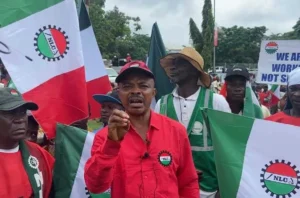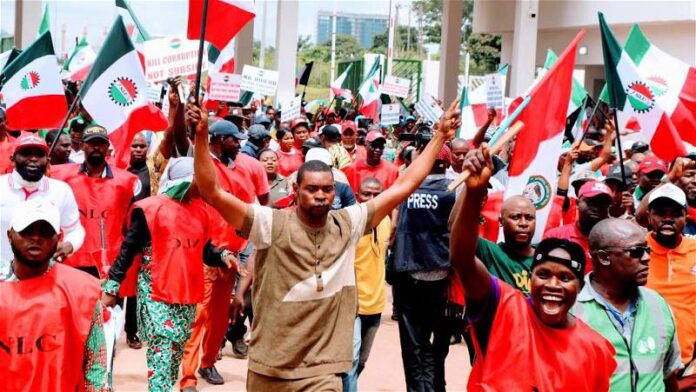The contentious issue of the national minimum wage in Nigeria has reached a critical point, prompting the House of Representatives to step in to avert a looming nationwide strike. The conflict centers on the disagreement between organized labor unions, the Federal Government, and the organized private sector (OPS) over the appropriate minimum wage.
Honourable Kelechi Nwogu sponsored a motion that drew the House’s attention to Order Eighteen, Rule 11 (5) of its standing orders, emphasizing the overdue report from the Joint Committees on Finance, National Planning and Economic Development, and Labour, Employment and Productivity. This report was expected within 80 days of a previous House resolution calling for a living wage for Nigerian workers, but it had yet to be submitted.
The organized labor groups, including the Nigerian Labour Congress (NLC) and the Trade Union Congress (TUC), initially proposed a minimum wage of N497,000, a figure significantly higher than the earlier proposed N615,000. Both proposals were rejected alongside the N54,000 suggested by the Federal Government and OPS. This impasse has led to heightened tensions and the threat of industrial action by the NLC.

Honourable Nwogu highlighted the urgency of addressing the delay in the committees’ report submission, given the imminent threat of a nationwide strike. He suggested that the matter be referred to an ad-hoc committee, effectively relieving the existing committees of their duties on this issue. Consequently, the House mandated its principal officers, along with the Committee on Labour, Employment and Productivity, to engage with organized labor and deliver a report within a week.
The NLC and TUC had previously issued a two-week ultimatum to the Federal Government, pressing for the completion of the minimum wage negotiation process. They emphasized the need for a fair agreement that reflects the significant contributions of Nigerian workers to national development and addresses the severe economic challenges facing the populace due to government policies.
The labor unions underscored the non-negotiable nature of their demands, urging the government to prioritize resolving these issues to maintain industrial peace. They also directed their state councils to issue similar ultimatums to state governments that have not fully implemented the existing N30,000 national minimum wage, threatening industrial action if compliance is not met within two weeks.
The intervention by the House of Representatives represents a crucial step towards resolving the minimum wage dispute. By mandating an immediate review and report, the House aims to bridge the gap between the conflicting parties and find a resolution that prevents a nationwide strike, which could cripple the nation’s economy and disrupt daily life.
This situation underscores the complexity of wage issues in Nigeria, requiring concerted efforts from all stakeholders—government, labor unions, and private sector representatives—to arrive at a satisfactory resolution. The coming days are critical in determining the outcome of this dispute and its implications for Nigerian workers nationwide.
The resolution of this conflict is vital not just for averting immediate industrial action but also for setting a precedent for future wage negotiations in Nigeria. It is a test of the government’s ability to effectively manage labor relations and ensure that the contributions of workers are adequately compensated in a way that promotes national development and economic stability.




